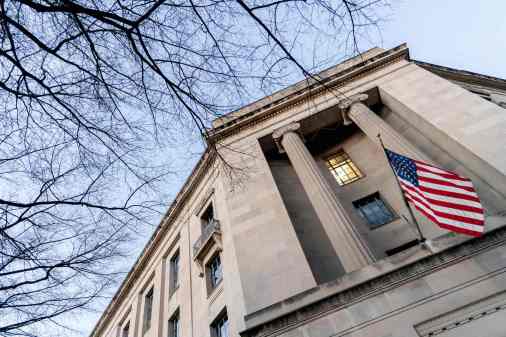Former TD Bank, Bank of America employee allegedly helped email scammers launder money

An accused money launderer allegedly used his positions as an employee at Bank of America and TD Bank to aid an email fraud scheme that scammed five businesses out of more than $1 million.
The U.S. Department of Justice announced Thursday that a grand jury had returned an indictment against three men — Onyewuchi Ibeh, Jason Joyner and Mouaaz Elkhebri — charging them with money laundering and aggravated identity theft. The defendants allegedly operated a business email compromise scheme, in which thieves pose as a business or associate in an email then ask a victim to wire up to hundreds of thousands of dollars at a time.
Elkhebri, a 30-year-old resident of Alexandria, Va., used inside access at Bank of America (where he worked as a personal banker and relationship manager from 2015 through 2017) and then TD Bank (where he worked from 2017 through 2018) to open multiple accounts that he used to further the fraud, according to the Justice Department. Prosecutors allege that Ibeh’s role in the scheme was to direct illicit wire transfers to specific accounts, while Joyner withdrew the money in cash.
The charges are another indication that, for scammers, internet technologies are a means of enabling fraud. By masquerading as a trusted entity, BEC fraudsters frequently convince corporate accountants, human resources personnel, sales associates and other unwitting employees to wire money across the world. The scheme in question netted some $1.1 million from five U.S. businesses, a pittance of the $1.8 billion in BEC losses reported to the FBI in 2020.
Elkhebri opened a number of “conspirator” accounts as a Bank of America employee, including an account that Ibeh used, the complaint notes. During his stint at TD Bank, Elkhebri also allegedly opened accounts on the conspiracy’s behalf, including one that an uncharged coconspirator paid $1,000 in cash. Neither bank is accused of wrongdoing.
CyberScoop could not immediately locate an attorney for the accused. TD Bank declined to comment. Bank of America did not immediately respond to an inquiry on the matter.
Additionally, surveillance video provided by the financial institutions appear to show members of the conspiracy withdrawing cash from brick-and-mortar bank locations.
The Justice Department charges are the latest allegations against suspected BEC scammers. European police, for instance, recently arrested 23 people in connection with a similar email conspiracy that aimed to capitalize on COVID-19 anxieties. In July, a federal judge sentenced a Nigerian man to seven years in prison for using spoofed email requests to try stealing more than $2 million from victims.
A copy of the latest affidavit is available in full below.
[documentcloud url=”https://www.documentcloud.org/documents/21080873-elhebri-complaint?responsive=1&title=1″]






